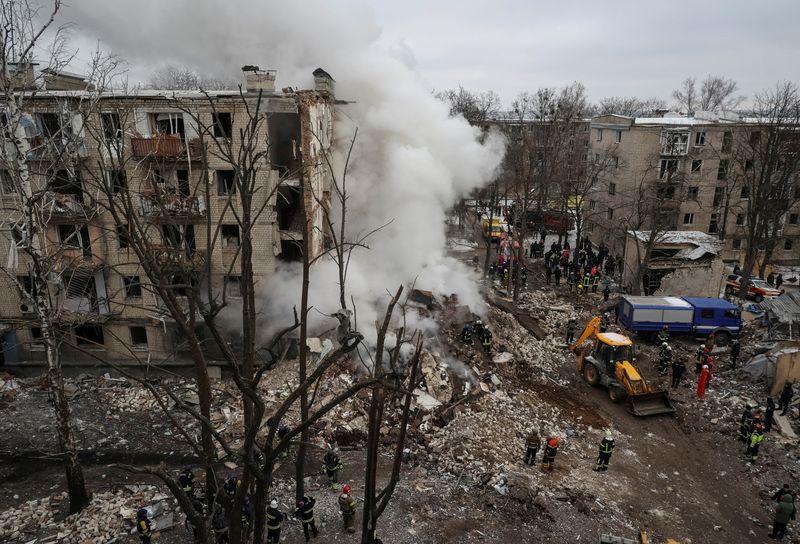KYIV (Reuters) - The UN's Human Rights Monitoring Mission in Ukraine (HRMMU) has released its first comprehensive report on the situation in the territories of Ukraine occupied since Russia's full-scale invasion in 2022.
The mission is part of the Office of the United Nations High Commissioner for Human Rights (OHCHR).
Although the U.N. did not have access to Russian-occupied areas, the report was based on 2,319 remote and in-person interviews with witnesses and victims.
"Many people living under occupation have endured intimidation and repression, facing a constant threat of violence, detention, and punishment," the report concluded, adding that in these cases nobody had been held accountable.
Moscow has repeatedly denied accusations that its forces have committed atrocities during the invasion, which it claims is a "special military operation".
Here are some of the report's findings:
KILLINGS
The report said its investigators had verified the executions of 26 civilians, including two children, on the spot, for instance during house searches, as well as the killing of a further 30 civilians during detention. Most executions were committed between March and May 2022, it said.
TORTURE AND SEXUAL VIOLENCE
The report said torture in places of detention was widespread.
"OHCHR received credible and reliable accounts regarding the treatment of 171 civilian detainees and found that 90% of them had been tortured or ill-treated," it said.
"Russian armed forces, law enforcement and penitentiary authorities used several types of violence: severe beating, kicking, cutting, putting sharp objects under the fingernails, waterboarding, mock executions, and applying electric shocks."
Forty-eight civilian detainees, including a child, were subjected to conflict-related sexual violence, including rape and genital mutilation, the report said.
OHCHR also documented cases of sexual violence by Russian armed forces on 16 civilians outside of detention -- almost all of these were women.
ARBITRARY DETENTION
According to the report, Russia's armed forces conducted widespread arbitrary detentions and forced disappearances during their occupation.
These initially targeted those perceived to be connected to Ukraine's army or security services, but this was gradually widened to broader categories of civilians believed to oppose the occupation.
In total, OHCHR documented 687 cases of arbitrary detention in the occupied areas up until December 2023: 587 men, 92 women, seven boys and one girl.
RUSSIAN PASSPORTS
The report found that Russia has pressured local residents to take Russian passports. This pressure has been applied through the workplace and through economic pressures.
It also said people's access to social benefits and healthcare was restricted if they did not take a Russian passport.
COLLABORATION
The report found that Russia used intimidation and violence to pressure civil servants in fields such as law enforcement and education to work under the Russian system. Journalists were pressured not to write "pro-Ukrainian" articles, it said.
However, the report also criticised the wording of Ukraine's law punishing collaboration with occupying forces as "vague and imprecise."
"The Ukrainian law on collaboration also risks criminalizing conduct which the Occupying Power can lawfully compel individuals to carry out ... and which might be essential for or benefit the normal life of the population of the occupied territory," the report said.

JUSTICE
The report found that approximately 1,600 civilian prisoners serving sentences in Ukraine's Kherson region before February 2022 had been transferred to Russian prisons.